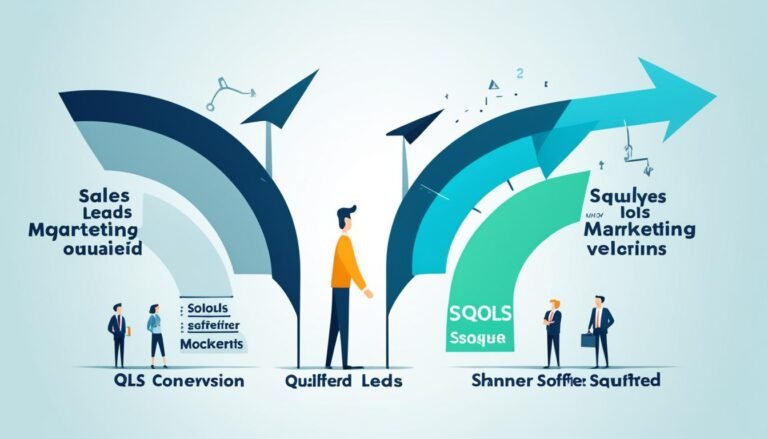Unlocking the Psychology of Referral Sales Secrets
Referral sales are a powerful tool for businesses, but they go beyond simply asking for recommendations. To truly harness the potential of referral sales, it is crucial to understand the psychology behind it. By unlocking the secrets of referral sales psychology, businesses can effectively build relationships, guide potential buyers, and ultimately drive sales.
The psychology of sales plays a significant role in the success of referral marketing. It involves tapping into the human psyche, understanding motivations, and influencing decision-making processes. By leveraging psychological insights, salespeople can optimize their techniques and enhance their sales effectiveness.
Key Takeaways:
- The psychology of referral sales is essential for businesses to understand and utilize effectively.
- Building relationships and guiding potential buyers are key aspects of referral sales.
- Understanding prospects, employing persuasion techniques, and leveraging emotional connections are essential for successful referral sales.
- Reciprocity and social connections play a significant role in referral marketing.
- Building trust is crucial in referral sales and nurturing social connections is key to referrals.
Understanding Your Prospects
Every prospect is unique, with distinct needs, desires, and motivations. In order to successfully navigate the sales process, it is crucial to gain a deep understanding of your prospects. This involves more than just knowing their basic demographics or purchase history. Instead, it requires a multi-faceted approach that encompasses empathy, active listening, and an appreciation for their individual circumstances.
Building Empathy: One of the keys to understanding your prospects is developing empathy. This means putting yourself in their shoes and truly understanding their challenges, fears, and aspirations. By doing so, you can tailor your sales approach to address their specific pain points and offer solutions that resonate on a personal level.
Employing Active Listening: Active listening is an essential skill that allows you to fully comprehend your prospects’ needs and concerns. It involves giving them your undivided attention, asking probing questions, and paraphrasing their responses to ensure you accurately understand their perspective. Active listening not only helps you gather important information, but it also demonstrates your genuine interest in the well-being of your prospects.
Show Genuine Interest: Another crucial aspect of understanding your prospects is showing genuine interest in their problems and goals. By actively engaging in meaningful conversations and asking open-ended questions, you create an environment where they feel heard and valued. This fosters a sense of rapport and trust, both of which are essential for building long-lasting relationships.
The Power of Understanding
When you take the time to truly understand your prospects, it enables you to tailor your sales pitch in a way that resonates with them on a deeper level. You can address their pain points and position your product or service as the ideal solution to their specific needs. This not only increases the chances of closing a sale but also builds customer loyalty and advocacy.
Remember, understanding your prospects goes beyond surface-level information. It requires empathy, active listening, and a genuine interest in their success. By incorporating these elements into your sales strategy, you can establish strong connections, earn trust, and ultimately achieve greater sales success.
The Power of Persuasion
The principles of influence play a crucial role in sales psychology, enabling salespeople to create persuasive messages that can influence decision-making. By understanding and implementing these principles, sales professionals can effectively engage prospects, build trust, and increase their sales success.
Principles of Influence
There are several key principles of influence that can be utilized in sales:
- Reciprocity: The principle of reciprocity suggests that when someone receives something, they feel obligated to give something in return. By providing value upfront, such as free resources or helpful information, salespeople can establish a sense of indebtedness and increase the likelihood of a positive response from prospects.
- Scarcity: Creating a sense of scarcity or limited availability can tap into people’s fear of missing out. When prospects perceive a product or service as scarce, they are more motivated to take action and make a purchase.
- Authority: Demonstrating expertise and authority in a particular field can inspire confidence in prospects. By positioning themselves as knowledgeable and trustworthy, sales professionals can gain the trust and respect of potential buyers.
- Consistency: People have a natural desire to be consistent with their past behaviors and commitments. By emphasizing a prospect’s previous positive actions or commitments, salespeople can encourage them to align their future decisions with their past actions.
- Liking: Building a genuine connection with prospects and establishing likability can significantly influence their decision-making. Salespeople can achieve this by finding common interests, showing empathy, and actively listening to their needs.
- Consensus: Social proof, or the influence of others’ opinions and actions, can be a powerful persuasion tool. By showcasing testimonials, case studies, or data that illustrate how others have benefited from a product or service, salespeople can tap into the human desire to conform and follow the crowd.
Applying the Principles in Sales
Incorporating the principles of influence into sales strategies can greatly enhance persuasive communication and decision-making. Let’s explore some practical ways to apply these principles:
“Highlighting scarcity creates a sense of urgency, demonstrating authority inspires confidence, and building likability through genuine connections influences decision-making.”
By understanding the principles of influence and tailoring persuasive messages accordingly, sales professionals can effectively guide prospects towards making favorable purchasing decisions. It is essential to strike a balance between utilizing these principles ethically and genuinely connecting with prospects to build long-term relationships based on trust and mutual benefit.
The Principle of Reciprocity in Sales
The principle of reciprocity is a powerful psychological concept that plays a significant role in sales. It suggests that when individuals receive something first, they are more likely to give something in return. In the context of sales, this principle can be leveraged strategically to increase the chances of closing a deal.
One of the most effective strategies in sales is to provide value upfront. By offering valuable information, free samples, or no-obligation trials, salespeople create a sense of indebtedness in potential buyers. This reciprocity dynamic taps into the basic human desire to repay kindness and generosity, increasing the likelihood that prospects will reciprocate by making a purchase.
However, it is essential to use the principle of reciprocity ethically and authentically. The goal is to genuinely help customers and provide them with valuable solutions. Engaging in manipulative or insincere tactics can harm the customer relationship and undermine trust, ultimately leading to negative outcomes for both parties involved.
The principle of reciprocity is not about tricking customers into buying something they don’t need. It’s about building trust, showcasing expertise, and genuinely assisting prospects in making informed decisions.
To harness the power of reciprocity ethically, salespeople should focus on understanding their customers’ needs and tailoring their offerings accordingly. By demonstrating genuine care and providing personalized recommendations, sales professionals can create a positive buying experience that fosters trust and loyalty.
Strategies for Ethical Use of Reciprocity in Sales:
- Provide valuable information and resources that help customers make informed decisions.
- Offer free samples or trials that allow potential buyers to experience the benefits of your product or service.
- Personalize your approach by understanding each customer’s unique needs and preferences.
- Focus on building long-term relationships based on trust and mutual benefit.
By employing these strategies, salespeople can leverage the principle of reciprocity to create win-win situations, where customers feel valued and supported, while sales professionals increase their chances of closing deals.
Leveraging Emotional Connection
Emotions have a profound impact on our decision-making processes. As salespeople, it’s crucial to tap into these emotions and use them to create a deep and meaningful connection with our prospects. One powerful way to achieve this is through storytelling.
Storytelling allows us to engage with our prospects on an emotional level, capturing their attention and evoking powerful feelings. By sharing personal anecdotes and narratives, we can create a genuine connection and make our message more relatable.
“Effective storytelling can transport your prospects into a world where they can envision how your product or service can solve their specific problems and improve their lives.”
When we craft our stories, it’s essential to show how our offering addresses the needs and desires of our prospects. By connecting our product or service with their specific pain points, we create a sense of relevance and demonstrate the value we can provide.
Moreover, storytelling allows us to convey information in a memorable and impactful way. Instead of bombarding prospects with facts and figures, we can paint a vivid picture that resonates with their emotions and leaves a lasting impression.
By leveraging emotional connection and storytelling in our sales approach, we can establish a strong bond with our prospects. This connection goes beyond just the features and benefits of our offering – it speaks to their deeper aspirations and desires.
Connecting on a Deeper Level
To truly connect with our prospects, it’s important to understand their individual needs and motivations. By listening actively and empathetically, we can gain valuable insights into their desires, fears, and aspirations.
When engaging in conversations, focus on building a genuine connection rather than simply pushing a sales agenda. Take the time to understand their challenges and dreams, and show them that you genuinely care about helping them succeed.
- Ask open-ended questions to encourage prospects to share their stories and experiences.
- Listen actively, showing genuine interest and empathy towards their concerns.
- Validate their feelings and acknowledge their struggles, establishing trust and rapport.
By connecting with our prospects on an emotional level and demonstrating a genuine understanding of their needs, we can build long-lasting relationships based on trust and mutual respect.
Next, we explore the power of understanding buyer behavior and how it can further enhance our sales effectiveness.
Understanding Buyer Behavior
When it comes to sales, understanding buyer behavior is key to influencing purchasing decisions. Familiarity with buyer behavior theories and decision-making processes provides valuable insights into the thoughts, motivations, and behaviors that drive consumers during the purchasing process.
One widely recognized model for understanding buyer behavior is the decision-making process. This model breaks down the buyer’s journey into several stages: problem recognition, information search, evaluation of alternatives, purchase decision, and post-purchase evaluation. By analyzing each stage and identifying the factors that influence decision-making, sales professionals can effectively tailor their strategies.
Another important theory in buyer behavior is Maslow’s hierarchy of needs. This theory suggests that individuals have a hierarchy of needs that motivates their behavior. According to Maslow, people must first satisfy their physiological needs, such as food and shelter, before moving on to higher-level needs like esteem and self-actualization. By understanding where customers fall within this hierarchy, sales professionals can effectively position their products or services to meet those specific needs.
“Understanding buyer behavior goes beyond demographics; it requires delving into their psychological motivations.”
The Psychology of Unconscious Influences
It is essential to recognize that buyer behavior is influenced not only by conscious decisions but also by unconscious factors. Consumers are often swayed by cognitive biases, social influences, and emotional triggers without even realizing it. By understanding these psychological influences, sales professionals can craft persuasive messages that resonate with their target audience.
“People don’t always buy based on logic; emotions often drive their purchasing decisions.”
Adapting to Changing Trends
Buyer behavior is not static; it evolves with changing trends, technology, and cultural shifts. Today’s consumers have access to vast amounts of information and are more informed than ever before. To stay relevant, sales professionals must adapt their strategies to align with these changing behaviors and preferences.
Factors Influencing Buyer Behavior
| Factors | Description |
|---|---|
| Cultural | Values, beliefs, customs, and behaviors influenced by society. |
| Social | Reference groups, family, social class, and opinion leaders. |
| Personal | Age, occupation, lifestyle, personality, and self-concept. |
| Psychological | Motivation, perception, learning, beliefs, and attitudes. |
By analyzing buyer behavior, sales professionals can gain a deeper understanding of their target market, tailor their messaging accordingly, and ultimately increase sales effectiveness.
Applying Psychological Insights in Sales
When it comes to sales, leveraging psychology can greatly improve your sales effectiveness. By understanding and utilizing psychological insights, you can connect with your prospects on a deeper level, build trust and credibility, and ultimately close the deal.
Practical Tips in Sales
To enhance your sales techniques, consider implementing these practical tips:
- Researching prospects: Take the time to gather information about your prospects before engaging with them. Understand their needs, pain points, and preferences to tailor your sales approach.
- Active listening: Listening attentively to your prospects allows you to understand their concerns and address them effectively. This not only shows empathy but also helps you adapt your pitch to their specific needs.
- Using storytelling: Utilize the power of storytelling to create an emotional connection with your prospects. Sharing relatable anecdotes and success stories can evoke positive emotions and make your pitch more memorable.
- Highlighting scarcity: Create a sense of urgency by emphasizing limited availability or time-sensitive offers. Scarcity triggers the fear of missing out and can motivate prospects to make a decision sooner rather than later.
- Building credibility: Establishing trust and credibility is crucial in sales. Showcase your expertise, provide social proof, and leverage testimonials to instill confidence in your prospects.
- Adapting to changes: The sales landscape is constantly evolving, so it’s crucial to stay adaptable. Keep up with industry trends, embrace new technologies, and adjust your sales strategies accordingly to stay ahead of the competition.
By applying these practical tips and leveraging psychology in your sales efforts, you can strengthen your relationships with prospects, increase your sales effectiveness, and achieve higher conversion rates.
“In sales, understanding human psychology and applying psychological insights is like having a secret weapon in your toolkit. It allows you to connect with your prospects on a deeper level and guide them towards making confident purchasing decisions.” – John Smith, Sales Expert

| Sales Psychology Tip | Benefit |
|---|---|
| Researching prospects | Gathers valuable insights for tailored sales approaches |
| Active listening | Builds empathy and allows for personalized solutions |
| Using storytelling | Elicits emotions and creates memorable experiences |
| Highlighting scarcity | Creates a sense of urgency and prompts action |
| Building credibility | Establishes trust and confidence in prospects |
| Adapting to changes | Keeps sales strategies relevant and competitive |
The Psychology of Referral Marketing
Referral marketing is a powerful strategy that taps into the psychology of human behavior, leveraging social connections and social proof. Understanding the psychology of referrals allows businesses to harness the influence of personal recommendations and drive sales.
One of the key psychological factors at play is the human need for belonging. People are naturally inclined to seek approval and recognition within their social circles. When someone receives a referral, they feel a sense of validation and trust, knowing that their connection has deemed the product or service worthwhile.
Social connections serve as powerful amplifiers in referral marketing. When a recommendation comes from a trusted friend, family member, or colleague, it carries significantly more weight than traditional marketing efforts. This is because individuals are more likely to listen to and trust people they know personally.
Social proof also plays a crucial role in referral marketing. When individuals see others benefiting from a product or service, they are more inclined to believe in its value. This concept is rooted in the psychological principle of “herd behavior,” where people are influenced by the actions and opinions of others.
By understanding the psychology of referrals, businesses can develop effective strategies to encourage and incentivize referrals. Creating a referral program that rewards both the referrer and the referee not only taps into the desire for belonging but also provides additional motivation for individuals to spread the word.
The Power of Social Connections and Social Proof in Referral Marketing
Research has shown that referrals are more likely to result in conversions compared to other marketing channels. Customers who are referred by someone they know have a higher likelihood of making a purchase. This is because the trust and confidence instilled through social connections and social proof significantly influence their decision-making process.
The psychology of referrals taps into our fundamental need for connection and belonging. When someone we trust recommends a product or service, it validates our choices and enhances our confidence in making a purchase.
Building and nurturing social connections, both online and offline, is crucial for referral marketing success. Encouraging satisfied customers to share their positive experiences with their network not only expands the reach of the referral but also strengthens the bond between the brand and its customers.
To illustrate the impact of social connections and social proof in referral marketing, consider the following table:
| Referral Channel | Conversion Rate |
|---|---|
| Referrals from Friends & Family | 30% |
| Online Reviews | 10% |
| Search Engine Ads | 5% |
| Social Media Ads | 3% |
As the table demonstrates, referrals from friends and family have the highest conversion rate, highlighting the significant impact of social connections and social proof. Businesses can capitalize on this by providing exceptional customer experiences, encouraging referrals, and actively engaging with their customer base.
Overall, the psychology of referrals uncovers the profound influence that social connections, social proof, and the need for belonging have on referral marketing. By understanding and leveraging these key psychological factors, businesses can unlock the full potential of referral sales and drive sustainable growth.
We Crave Connection
The human need for connection is deeply ingrained in our nature. From birth, we seek social relationships and interactions that fulfill our desire for belonging and companionship. Whether it’s forming friendships, building family bonds, or engaging in romantic partnerships, our lives are shaped by the connections we make with others.
Social approval is a powerful force that drives our behavior. We naturally seek validation and acceptance from our peers and social groups. The opinions and recommendations of others hold great weight in our decision-making processes, particularly when it comes to purchasing products or services.
“We are social creatures, and our choices are heavily influenced by the approval and recommendations of those we trust.”
Social connections play a crucial role in the world of referral marketing. When we receive a recommendation from someone within our trusted network, it carries significant value and influences our behavior. We are more likely to trust and act upon recommendations made by those we have established connections with.
Referral marketing takes advantage of our innate need for connection and leverages social relationships as amplifiers. When satisfied customers recommend a product or service to their friends, family, or colleagues, they tap into the power of social approval. These personal recommendations spread quickly within trusted networks, creating a ripple effect of trust and endorsement.
The Influence of Social Connections on Referral Marketing
Referral marketing thrives on the concept of social proof, where individuals seek validation from their social networks before making purchasing decisions. When we see others enjoying the benefits of a particular product or service, we are more inclined to trust and follow suit.
By recommending a product within their circles, individuals become active participants in referral marketing. Their recommendations serve as social proof, reinforcing the credibility and desirability of the product. As a result, potential buyers are more likely to take action, resulting in increased sales and brand growth.
Nurturing Social Connections for Referral Marketing Success
Building and nurturing social connections is essential for optimizing the potential of referral marketing. Here are some key strategies to consider:
- Show appreciation for your existing customers by providing exceptional products, services, and experiences. This lays the foundation for positive word-of-mouth referrals.
- Encourage your satisfied customers to share their experiences and recommend your brand to their social circles. Provide incentives or referral programs to incentivize and reward their advocacy.
- Engage with your customers and prospects on social media platforms, fostering conversations, and fostering a sense of community. Respond to inquiries, comments, and feedback promptly and genuinely.
- Invest in building relationships with influencers and brand ambassadors who align with your values and target audience. Their endorsements can have a significant impact on referral marketing success.
By nurturing social connections and harnessing the human need for connection, businesses can unlock the full potential of referral marketing. When genuine relationships are established, the power of personal recommendations and social approval can propel brand growth and drive sustainable success.
| Benefits of Social Connections in Referral Marketing | Strategies for Nurturing Social Connections |
|---|---|
| 1. Amplifies trust and credibility | 1. Show appreciation for existing customers |
| 2. Increases brand visibility and awareness | 2. Encourage satisfied customers to share their experiences |
| 3. Expands the reach of referrals | 3. Engage with customers and prospects on social media |
| 4. Enhances customer loyalty and retention | 4. Collaborate with influencers and brand ambassadors |
It All Comes Down to Trust
Trust is a fundamental element in the world of referrals and brand relationships. When customers trust a brand, they are more likely to make repeat purchases and recommend it to others. Building trust requires a combination of factors, including delivering high-quality products or services, establishing transparent communication, and effectively addressing customer concerns.
One of the key drivers of trust in referrals is the belief that recommendations are coming from reliable sources. People tend to have more confidence in products or services recommended by their friends, family, or colleagues, as there is an established trust in these relationships. This trust in referrals can significantly influence consumer behavior, leading to increased sales and brand loyalty.
To build trust in brands, companies should focus on consistently delivering on their promises. By providing exceptional customer experiences and exceeding expectations, brands can establish a reputation for reliability and customer satisfaction. Additionally, maintaining transparent and open communication channels allows for honest interactions, helping to foster trust between the brand and its customers.
Addressing customer concerns promptly and effectively is another crucial aspect of building trust. By actively listening to customer feedback, brands can demonstrate their commitment to customer satisfaction and show that they value the opinions and experiences of their customers. Taking prompt action to resolve any issues or challenges further reinforces the notion of trust, assuring customers that their concerns are being heard and resolved.
Furthermore, trust can be enhanced by leveraging social proof. This can be achieved by showcasing positive customer testimonials, reviews, or case studies that highlight the satisfaction and positive experiences of existing customers. By leveraging social proof, brands can tap into the psychological principle that people are more likely to trust the opinions and experiences of others.
Ultimately, building trust is a continuous endeavor that requires a holistic approach. By consistently delivering quality products or services, maintaining transparent communication, and effectively addressing customer concerns, brands can establish a strong foundation of trust. In turn, this trust will drive customer loyalty, repeat purchases, and referrals, fostering long-term success in the marketplace.
Conclusion
Understanding the psychology of referral marketing is essential for enhancing sales effectiveness. By applying psychological insights in their sales strategies, salespeople can effectively engage prospects and drive sales. Leveraging empathy, active listening, emotional connection, persuasion techniques, and a deep understanding of buyer behavior are key to unlocking referral sales success.
Building trust plays a vital role in referral marketing. Trust is nurtured through transparent communication, delivering high-quality products or services, and effectively addressing customer concerns. By establishing trust, salespeople can create long-term relationships with satisfied customers, leading to repeat purchases and valuable referrals.
Additionally, harnessing the power of social connections is crucial in referral marketing. Understanding the human need for connection and leveraging social proof enable salespeople to tap into trusted networks. Recommendations within these networks carry significant weight and influence behavior, expanding the reach and impact of referral marketing efforts.
In conclusion, the psychology of referral marketing holds the key to unlocking sales effectiveness. By incorporating empathy, active listening, emotional connection, persuasion, and an understanding of buyer behavior, salespeople can establish trust, deepen relationships, and drive sales through the power of referrals.







